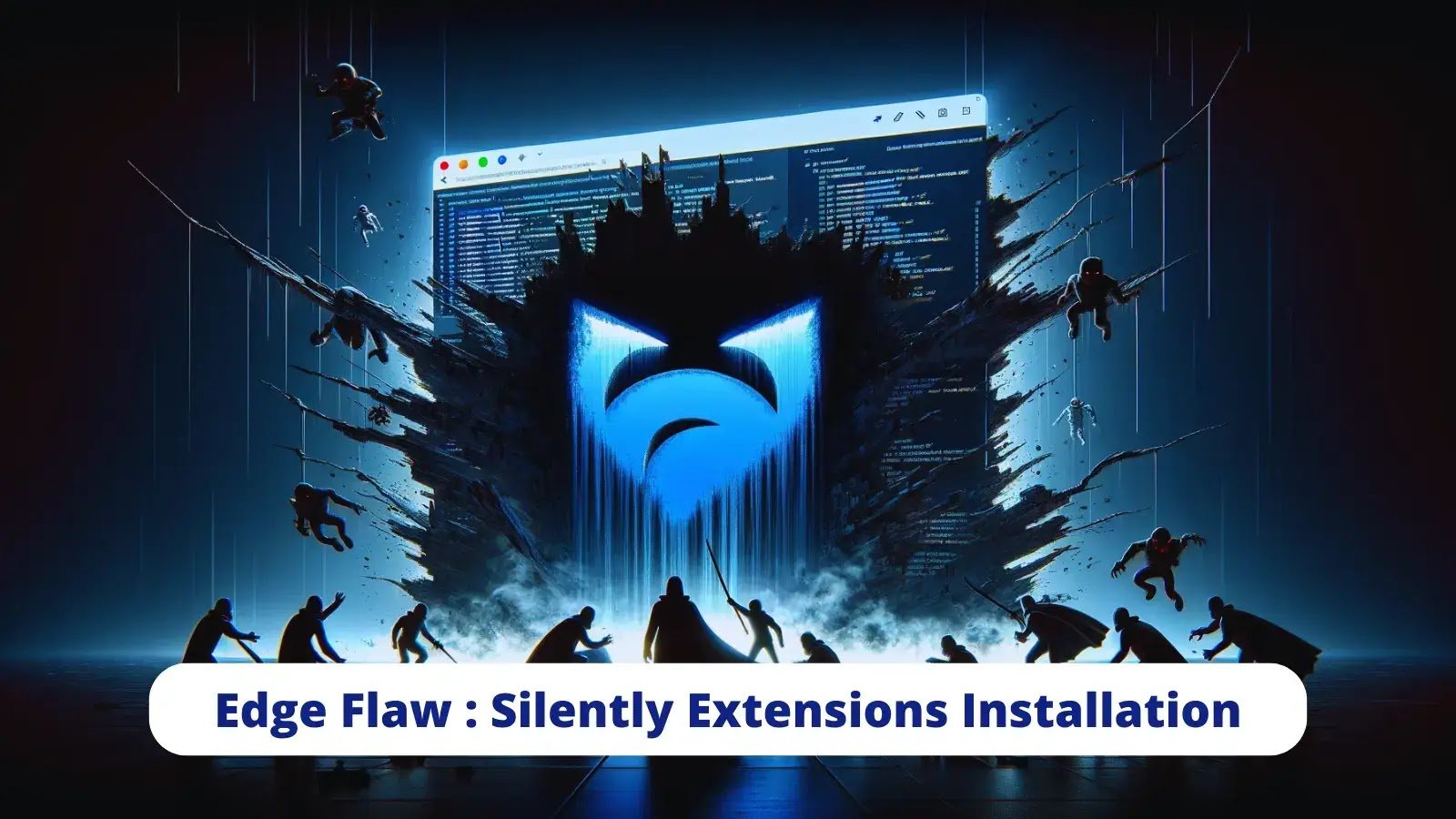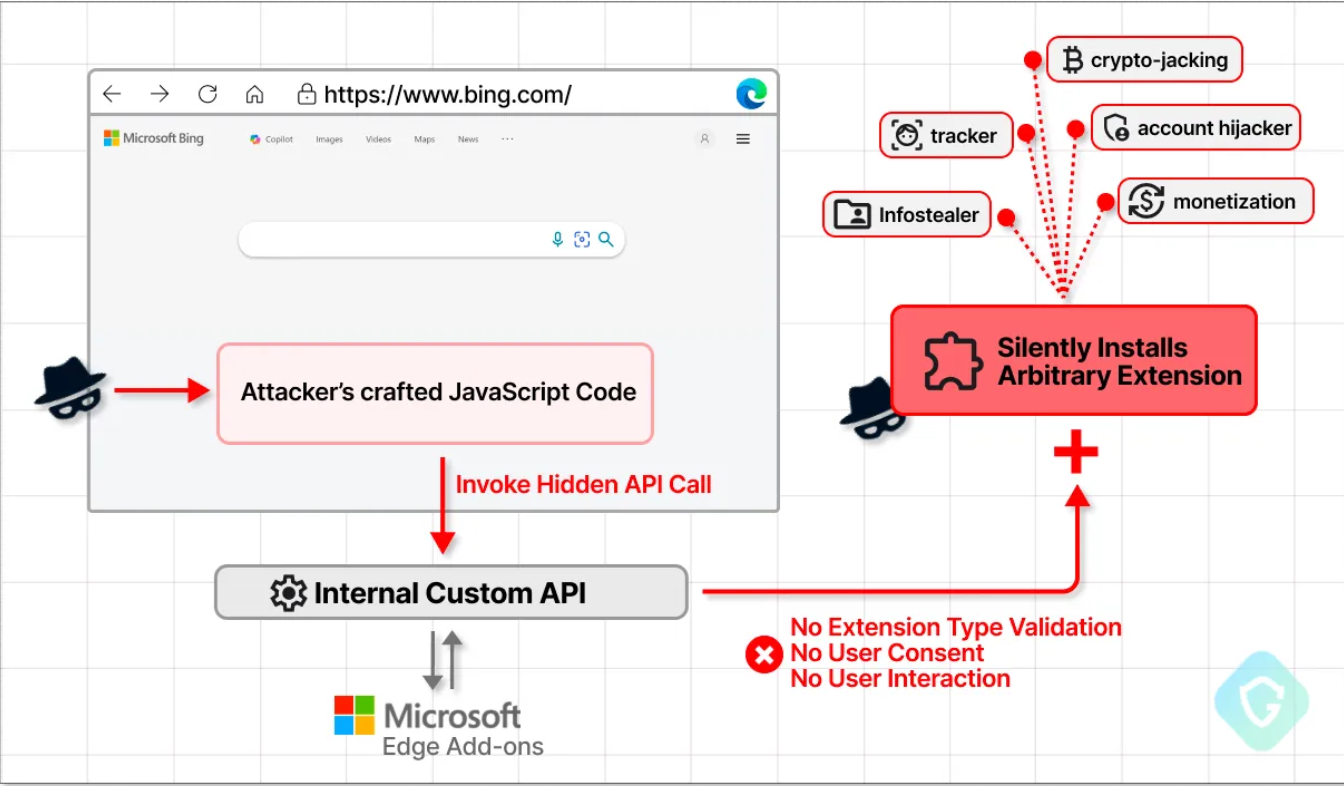
Microsoft Edge Flaw Let Hackers Silently Install Malicious Extensions
Guardio Labs has uncovered a significant vulnerability in Microsoft Edge, Microsoft’s flagship web browser, that could allow hackers to install malicious extensions without the user’s knowledge.
This flaw, if exploited, could lead to a range of security breaches, including data theft, privacy invasion, and unauthorized access to users’ online activities.
The vulnerability, identified as CVE-2024-26246, was discovered in the Chromium-based version of Microsoft Edge.
It is a security feature bypass vulnerability that could potentially allow attackers to circumvent the browser’s security mechanisms designed to prevent the silent installation of extensions.
This could enable cybercriminals to install harmful extensions that could spy on users, steal sensitive information, or even take control of the affected system.
According to the researchers at Guardio Labs, the flaw resides in the way Microsoft Edge handles the installation of extensions.
Normally, the browser requires user interaction and explicit permission to install any extension.
However, this vulnerability could be exploited to bypass these security checks, allowing malicious extensions to be installed silently without the user’s consent or knowledge.
Edge Flaw: Silently Extensions Installation
The implications of this vulnerability are particularly concerning because extensions can access and manipulate web content that users interact with.
Malicious extensions could potentially capture passwords, track users’ online activities, redirect users to phishing sites, or inject malicious code into legitimate websites.
Upon discovering the vulnerability, Guardio Labs promptly reported their findings to Microsoft, which has since acknowledged the issue and released a patch to address the flaw.

Microsoft has urged all users of Microsoft Edge to update their browsers to the latest version to protect against potential exploitation of this vulnerability.
This incident highlights the ongoing challenges in ensuring the security of web browsers, which are among the most widely used software applications.
Browsers serve as the primary interface for accessing the internet, making them a prime target for cybercriminals looking to exploit vulnerabilities for malicious purposes.
To safeguard against such threats, users are advised to keep their browsers and all installed extensions up to date. Additionally, users should be cautious when installing extensions, especially those from unknown or untrusted sources.
It is also recommended that installed extensions are regularly reviewed and managed, removing any that are no longer needed or that appear suspicious.
Microsoft’s swift response in patching this vulnerability demonstrates the company’s commitment to the security of its users. However, this incident serves as a reminder of the importance of cybersecurity vigilance, both on the part of software developers and users.
As cyber threats continue to evolve, staying informed and adopting best practices for online security is crucial in protecting against potential attacks.
For more information on the vulnerability and tips on how to protect your browser, users are encouraged to visit the official Microsoft Edge support page and the Guardio Labs website.
Source: https://bit.ly/3uS5LZ2



